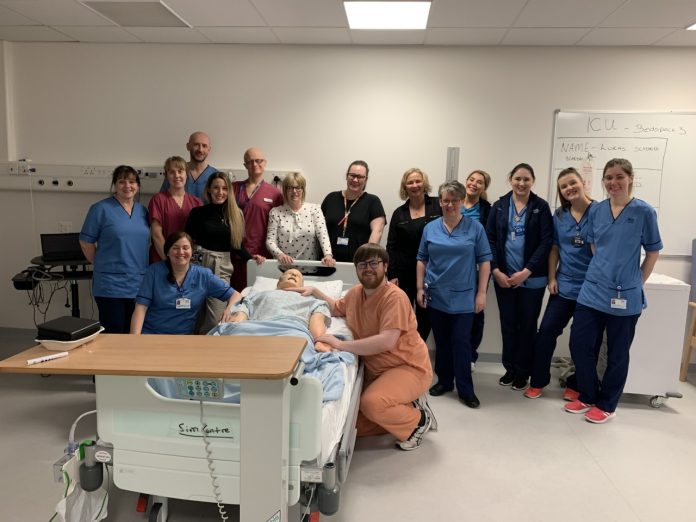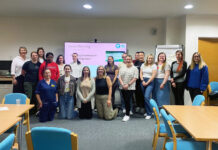Changing a culture in the workplace can be challenging. But Kimberley Kirkbright, a Senior Clinical Nurse in ICU at Forth Valley Royal Hospital was determined to bring an extra dimension to learning, introducing in situ Simulation Based Education. This involved interactive workshops and scenarios using mannequins or simulated patients.
A keen advocate of simulation training, and aware that some staff can be apprehensive about this method of learning, she encouraged staff of varying grades to be part of the simulation team to help facilitate the project. With various roles on offer it meant all staff could be included. The team then moved to facilitating a course – Managing Intensive Care Emergencies (MICE) in March which was predominantly nurse- led taking place at the Scottish Centre for Simulation and Clinical Human Factors, based in the hospital. Now, after two years of hard work, Kimberley’s efforts have been rewarded when her poster gained first prize at the annual (virtual) conference of the British Association of Critical Care Nursing.
Kimberley explained: “ICU at FVRH now has a fully established team that support one another in delivering simulation based education. We hope this inspires other staff who have a similar ambition and will now have the courage to take on this challenge in their own areas. My recommendation is to ‘sell’ simulation in the right way by making it fun, relevant and accessible.”
The two-year journey took patience and perseverance, but Kimberley says staff now trust and believe in this method of learning; feedback revealed simulated learning should be integral in staff development. Other comments from a recent evaluation form included:
“Thank goodness for that as I had the same situation the next day with a real patient!”
“Great opportunity to ask questions and clarify current practices”
“Fun and very clever way to learn with your own team in your own role”
Staff were closely involved in the learning throughout. Scenario choices were made using a suggestion box system, ideas were listened to and staff were continually kept in the loop. Small start, finish big was the secret of success.







